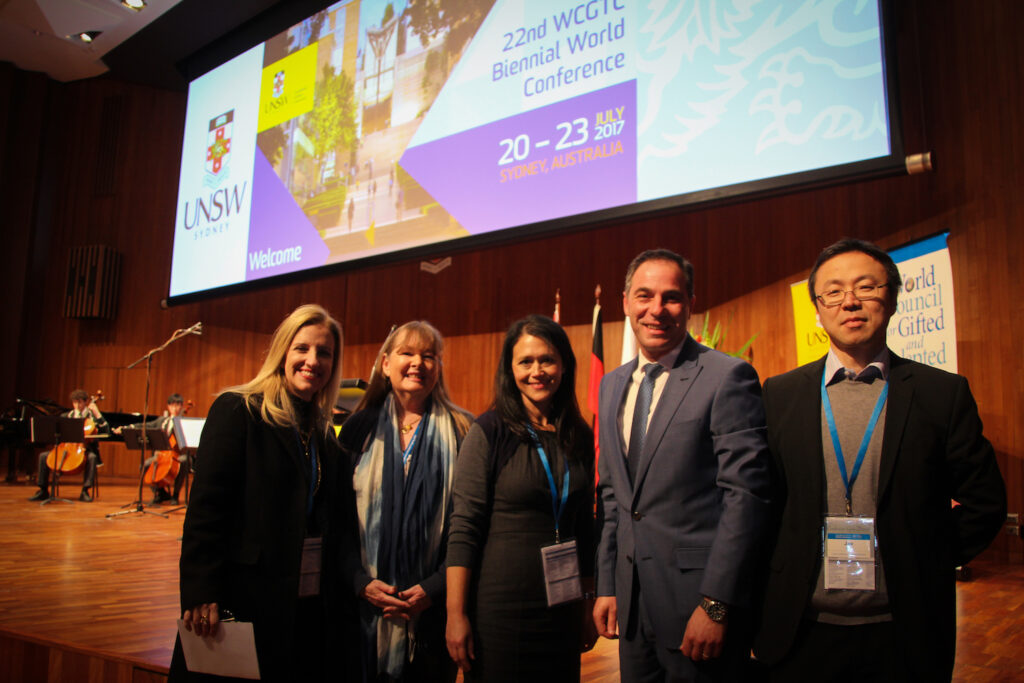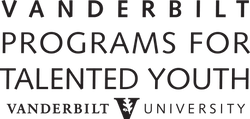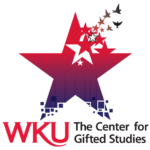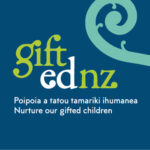Keynotes
We are excited to include six keynote presentations at the upcoming World Conference, representing eight different speakers from around the globe. See below for a list of the speakers.
Keynotes
The Study of Mathematically Precocious Youth (SMPY), based at Vanderbilt University, has been tracking more than 5,000 highly-talented individuals for more than 45 years. Most were identified through talent searches at around age 13. The study’s findings have overturned conventional wisdom about exceptional talent and have shed valuable light on the educational policies and resources needed to support this population. In this address, SMPY co-director Camilla P. Benbow will discuss important findings for gifted education to have emerged from the study. For example, SMPY has shown that the talented and high-achieving knowledge-workers needed by our conceptual economy can be identified as early as age 12. Even among the most talented (0.01 percent) there is no threshold effect for ability. More is always better. Nevertheless, the pattern of specific abilities (and interests) does matter for education as well as career choice. Differences are further reflected in adulthood, where gifted men and women weigh the importance of work, family, and personal variables differently—even as they construct satisfying lives for themselves. Overall, SMPY has demonstrated that educational interventions on behalf of gifted students have both short-term and long-term positive benefits.
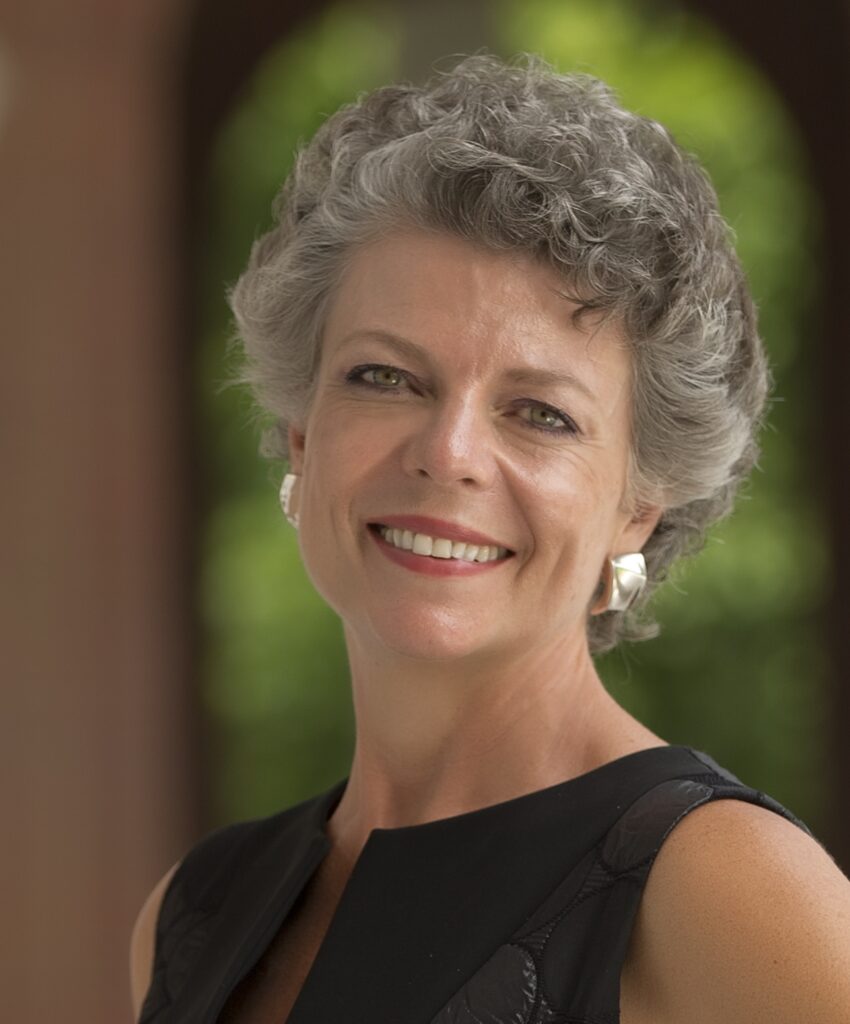
Camilla P. Benbow is Patricia and Rodes Hart Dean of Education and Human Development at Vanderbilt University’s Peabody College of education and human development. She has led Peabody since 1998. A prominent scholar of talent identification and talent development, she also co-directs the Study of Mathematically Precocious Youth, a longitudinal study examining the developmental trajectories of more than 5,000 individuals now in its 47th year. She is particularly interested in developing intellectual talent and excellence in science, technology, engineering, and mathematics. Benbow began her academic career at Johns Hopkins University following completion of her doctorate in education in 1981. She later moved to Iowa State University and then Vanderbilt. She has served on the National Science Board, as vice-chair of the National Mathematics Advisory Panel, and on the board of the American Psychological Foundation. She is a past trustee of Fisk University, and a fellow of the American Psychological Association and the American Educational Research Association. In 2018, Benbow received the Lifetime Achievement Award of the International Society for Intelligence Research. She has also received the David Imig Award from the American Association of Colleges for Teacher Education (2010), the President’s Award from the National Association for Gifted Children (2009), the Distinguished Alumna Award from Johns Hopkins University (2008), and the Lifetime Achievement Award of the MENSA Education and Research Foundation (2004).
Intervention strategies for high performers belonging to culturally diverse populations pose several challenges for professionals in schools and public policies as well as in the wider community. The major purposes of this keynote are to: (a) describe teachers’ perceptions about programs for high performing students following the cultural context; (b) analyze inclusive and exclusive provisions for high performers in Peru, underlining the cultural effect of social support; (c) discuss culturally sensitive intervention programs for young scholars in the Andean countries; and (d) present the challenges for future high performers belonging to the Latin American collectivistic context.
The first study explores the variables associated with teachers’ perceptions about intervention programs for high performing students in different cultural contexts of Latin America. Results reveal that the perception of “exclusive practices” might prevent certain intervention strategies (e.g., acceleration) from being applied in collectivistic groups, while “inclusive practices” are included in public policies. The second study explores the relationship between Academic Resilience, Achievement Goals and Implicit Theories of Intelligence in a senior class of the Peruvian Academy of High Achievers. Results revealed that the Mastery-Approach Goal became a mediating variable between the Incremental Theory of Intelligence and Academic Resilience, among other results. Study 3 follows a comparative study on creative performance and the classroom climate for creativity in high school students of Amazon rural and urban state-funded schools in Peru. Results will be discussed in relation to the challenges for high performers in collectivistic contexts for the future.
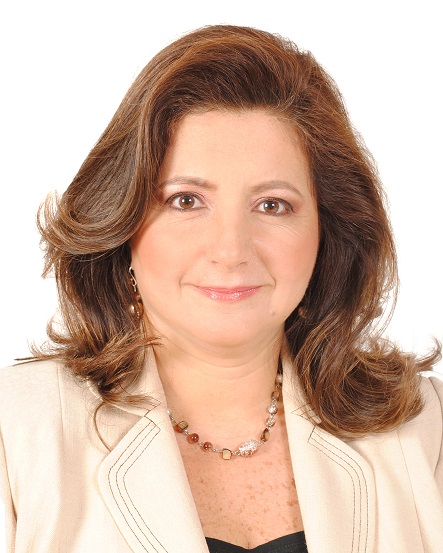
Dr. Sheyla Blumen Cohen is a Professor of Psychology and Editor-in-Chief of Revista de Psicologia (PUCP), the only Peruvian scholarly journal in Psychology indexed in Scopus. She is a board member of the International Association of Applied Psychology, as well as of the School of Graduate Studies and the School of Psychology, at the PUCP. As founder of the Inter-Disciplinary Research Group CREA TALENTUM, she collaborates with international colleagues in the adaptation of psychometric measures related to creativity and high ability studies. As CEO of Mente Futura Foundation, she promotes talent development towards excellence in ethnic-linguistic diverse and multicultural young scholars. She was instrumental in the launching of the Peruvian Law supporting the high achievers, and in the development of the state-funded Academies of Arts and Sciences for high achievers coming from low socio-economic background and ethnic-linguistic minorities from the Andean and Amazon region. Actually 25 Academies nationwide benefit 7,000 high achieving students living below the poverty line. She was recognized with the Innovation Award in College Teaching (2015), the PUCP Research Award on 2013, 2014, 2015, 2016, and 2017; and received recognitions on Scientific Publishing (2008), Educational Psychology (2010), and Life-career in teaching and research in Educational Psychology (2014). Internationally, she received the World Bank/GDN Award for Young Scientist in Applied Education (2005), the Belin-Blank/Templeton International Fellowship on Gifted Education (2008), and the Eisenhower Fellowships (EF 2011). Chair of the 35th Inter-American Conference of Psychology, she is invited keynote at international conferences, and has been invited Professor at PUC Campinas, Universidade de Brasilia, Universidade Catolica de Brasilia, Universidad Católica de Chile, Universidad de La Frontera-Chile, Universidad Técnica Particular de Loja, Universidad Complutense de Madrid, Universidad Autónoma de Madrid, Radboud Universiteit Nijmegen, and Harvard University/School of Education. She has published 135 books, chapters, and articles in the fields of talent development, cognitive processes, and educational psychology; and participated in 36 research projects.
Teachers hold the majority of the power in classrooms; they control what and how students learn. The transfer of control from teacher to student distinguishes personalized learning from differentiated or individualized learning experiences. Years of research on motivation have reported the academic and emotional benefits of sharing control with students by creating opportunities for them to have a voice in the design and assessment of their learning. In the process, they develop their strengths, struggle to overcome obstacles, and become increasingly accountable for their growth from mistakes and accomplishments. Personalizing learning not only enhances engagement and development, it prepares learners to learn with greater passion and efficiency beyond school. These experiences are particularly empowering for individuals with the greatest potential to learn; however, even the most capable learners vary in their readiness to take responsibility for their learning. As well as relinquishing control, educators need to be prepared to support the development of their increasing autonomy. In British Columbia (Canada), our public schools are in the midst of this transition for all learners. It’s an exciting time to share the foundations, practices, and lessons learned. British Columbia’s high ability learners will speak for themselves, bringing life to the process with stories of personalizing their learning.
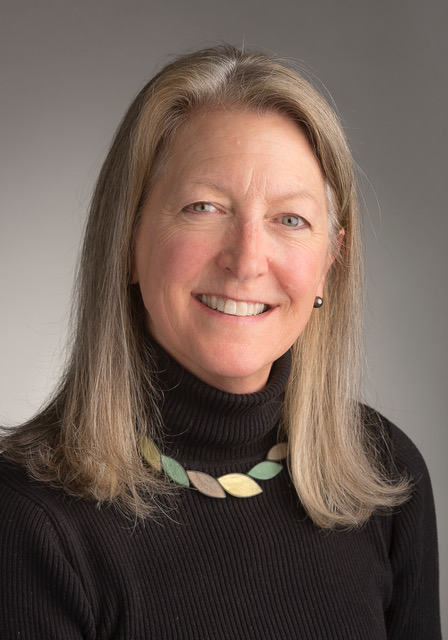
Dr. Lannie Kanevsky is an Associate Professor in the Faculty of Education at Simon Fraser University (Vancouver, Canada). Understanding and advocating for student voices in their learning has been a consistent feature of Dr. Kanevsky’s research and the materials she has developed to help learners and educators co-construct, personalize, and differentiate learning experiences. Many of the materials can be found in the Tool Kit for High End Differentiation and on her website, Possibilities for Learning (possibilitiesforlearning.com). They have evolved through years of collaboration and research with students and colleagues in schools and universities. She has been a Visiting Professor in Australia and the U.S., and has shared her work in print, presentations, and workshops with students, educators, parents, and scholars in Europe, Asia, and North America. After completing her Ph.D. at Teachers College (Columbia University), she returned to her undergraduate alma mater to join the Faculty of Education because of its commitment to experiential learning, reflective practice, and social justice. While there she has been recognized for her scholarly teaching and selected as a Dewey Fellow by the Institute for the Study of Teaching and Learning in the Disciplines.
Psychologists and educators, fascinated with the beauty, grace, and sheer brilliance of extraordinary performers, share many words to describe their interest in outstanding production and performance. Texts on giftedness and talent tend to address what is known about identification, counseling, parenting, curriculum, or teacher preparation in a generic form – less on talent that is manifested developmentally in high performance within domains. Certainly, focusing on advanced and brilliant young people with high grade point averages or IQs, and what can be done to support their continued growth is important. Eventually, however, as individuals move into adolescence and adulthood, the label of gifted is less meaningful unless applied to advanced achievement and creativity in domains, fields, or professions. Our work and that of collaborating scholars builds on studies developed and led by Benjamin Bloom and his colleagues (1985, Developing Talent in Young People), which explored similarities and differences in development between and among the domains of sport (tennis and swimming), arts (sculpture and piano performance), and academics (mathematics and neurology). Bloom’s book continues to be cited frequently in academic and educational circles. However, there has not been an update in over 30 years.
This session explores what is involved in the manifestation of high performance, including the major role of psychosocial skills in varied domains. Much can be learned from domains where psychological science and practice are deeply embedded, such as in sport or business, and applied to less developed fields. The session will end with a synthesis of important themes, highlighting similarities and differences across domains and gaps in the knowledge base, and providing some suggestions for future research on the psychology of high performance.
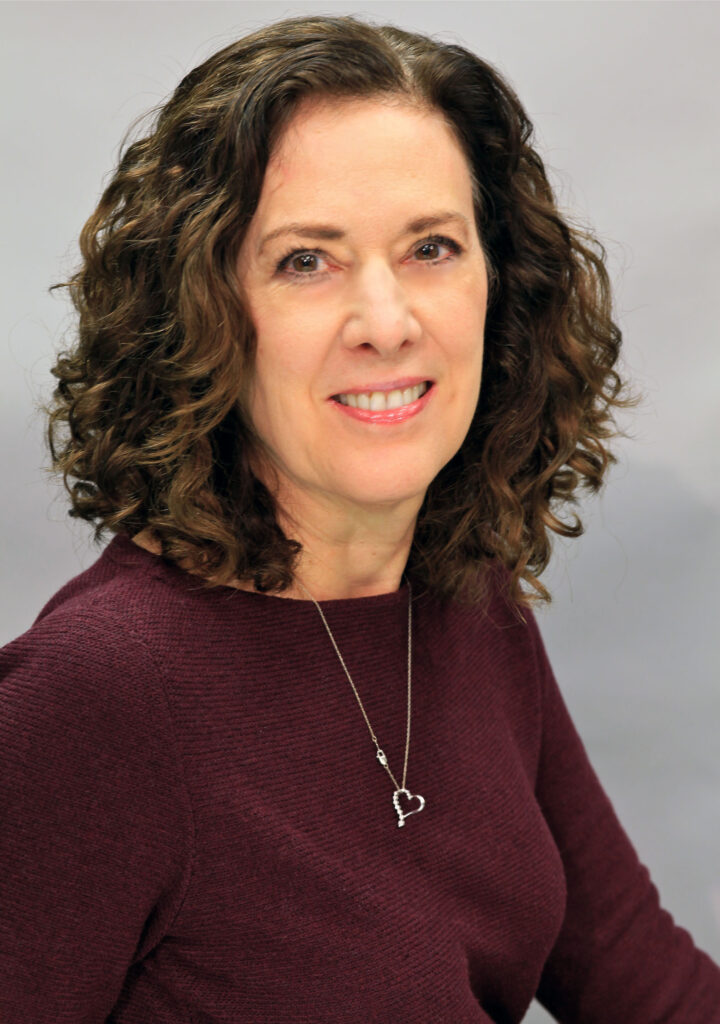
Dr. Paula Olszewski-Kubilius is the director of the Center for Talent Development at Northwestern University and a professor in the School of Education and Social Policy. Over the past 35 years, she has worked to create programs models to meet the need of diverse gifted learners including distance learning programs, summer, and weekend programs. She has written and published extensively about issues in gifted education, with a particular focus on talent development for under-served gifted students. She has served as the editor of Gifted Child Quarterly, co-editor of theJournal of Secondary Gifted Educationand on the editorial boards of Gifted and Talented International, Roeper Review, Journal for the Education of the Gifted,andGifted Child Today. She currently is on the board of trustees of the Illinois Mathematics and Science Academy and is president- of the Illinois Association for the Gifted. She also serves on that advisory boards for the Center for Gifted Education at the College of William and Mary and the Robinson Center for Young Scholars at the University of Washington. She is Past- President of the National Association for Gifted Children and received the Distinguished Scholar Award in 2009 from NAGC.
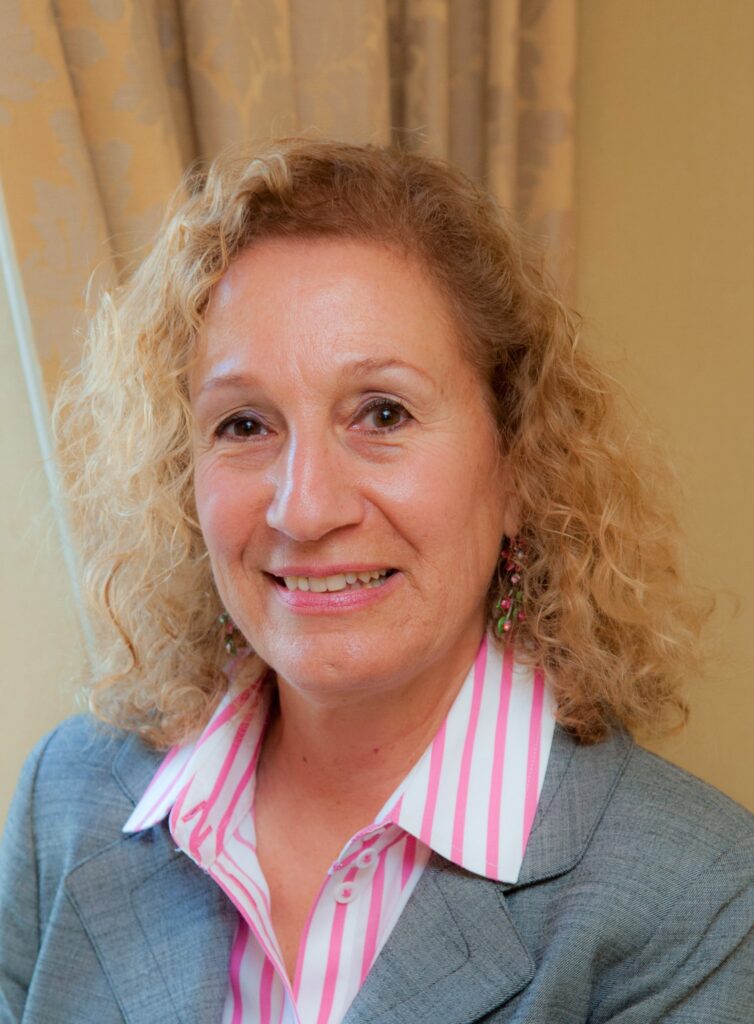
Rena F. Subotnik PhD is Director of the Center for Psychology in Schools and Education at the American Psychological Association. One of the Center’s missions is to generate public awareness, advocacy, clinical applications, and cutting-edge research ideas that enhance the achievement and performance of children and adolescents with gifts and talents in all domains. She has been supported in this work by the National Science Foundation, the American Psychological Foundation, and the Association for Psychological Science, the Camille and Henri Dreyfus Foundation, and the Jack Kent Cooke Foundation.
She is co-author (with Paula Olszewski-Kubilius and Frank Worrell) of The Talent Gap: The U.S. is Neglecting its Most Promising Science Students(Scientific American), Nurturing the Young Genius: Renewing our Commitment to Gifted Education is Key to a More Innovative, Productive and Culturally Rich Society (Scientific American Mind), Rethinking Giftedness and Gifted Education: A Proposed Direction Forward Based on Psychological Science (in Psychological Science in the Public Interest), and co-editor of the forthcoming (with Paula Olszewski-Kubilius and Frank Worrell) The Psychology of High Performance: Developing Human Potential Into Domain-Specific Talent, (with Ann Robinson, Carolyn Callahan and Jean Gubbins) Malleable minds: Translating insights from psychology and neuroscience to gifted education, (with Bruce Thompson) Methodologies for Conducting Research on Giftedness, and (with Frances Horowitz and Dona Matthews) Developing Giftedness and Talent Across the Life Span.
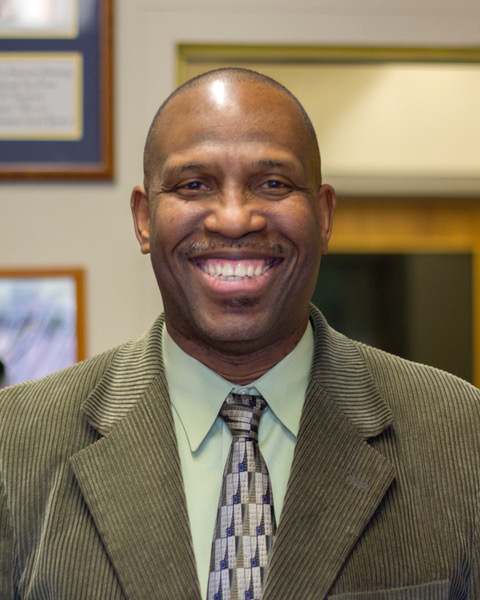
Frank C. Worrell is a Professor in the Graduate School of Education at the University of California, Berkeley, where he serves as Director of the School Psychology Program, Faculty Director of the Academic Talent Development Program, and Faculty Director of the California College Preparatory Academy. He also holds an affiliate appointment in the Social and Personality Area in the Department of Psychology, and from 2014 to 2017, was a Visiting Professor Appointment in the Faculty of Education and Social Work at the University of Auckland. His areas of expertise include academic talent development/gifted education, at-risk youth, cultural identities, scale development and validation, teacher effectiveness, and the translation of psychological research findings into school-based practice. A member of the editorial boards of several journals, Dr. Worrell served as co-Editor and Editor of Review of Educational Research from 2012 to 2016 and as a Member at Large (2016 – 2018) on the Board of Directors of the American Psychological Association (APA). Dr. Worrell is a Fellow of the Association for Psychological Science, the American Educational Research Association, and five divisions of APA; an elected member of the Society for the Study of School Psychology (2007) and the National Academy of Education (2018). Dr. Worrell is a recipient of the Distinguished Scholar Award from the National Association for Gifted Children (2013), the Distinguished Contributions to Research Award from the Division 45 (the Society for the Psychological Study of Culture, Ethnicity, and Race) of APA (2015), and the Outstanding International Psychologist Award from Division 52 (International Psychology) of APA (2018).
One of the greatest challenges impacting gifted Indigenous students’ participation in education concerns the restoration and experience of cultural pride and efficacy in their lives. Low teacher expectations of Indigenous students, inappropriate gifted identification criteria, ruinous media misrepresentation, and internalised deficit thinking by Indigenous students themselves, are key reasons why Indigenous under-participation in gifted education exists and persists.In this presentation, I use Aotearoa New Zealand as a case study, focusing on how Māori identity development affects the wellbeing, motivation, and academic engagement of gifted Māori students. Along with describing the importance and manifestation of gifted potential in Māori students’ lives, I offer solutions for change using the findings of the Ka Awatea study (Macfarlane, Webber, McRae and Cookson-Cox, 2014). Five social-psychological themes concerning the personal, familial, school, and community conditions for gifted Maori students thriving are discussed: Mana Whānau (familial pride), Mana Motuhake (personal pride and a sense of embedded achievement), Mana Tū (tenacity and self-esteem), Mana Ūkaipo (cultural belonging and connectedness) and Mana Tangatarua (the ability to maximise their bi- and multi-cultural knowledge bases).
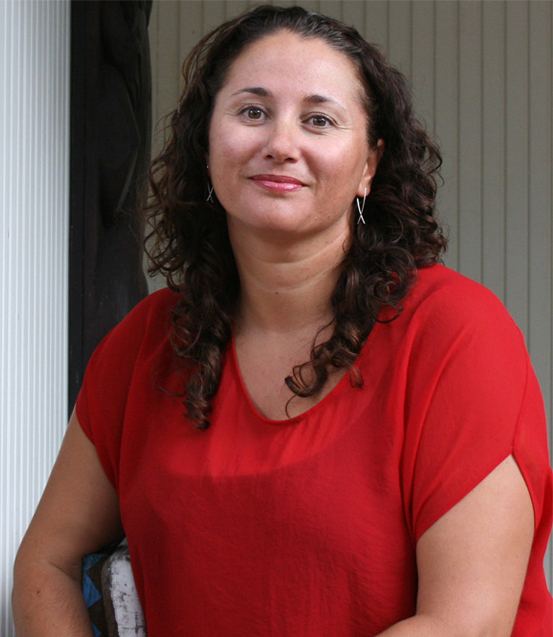
Dr. Melinda Webber is an Associate Professor in the Faculty of Education at the University of Auckland, New Zealand. Melinda is a former Fulbright/Ngā Pae o te Maramatanga Indigenous Scholar who has published widely on the nature of ethnic identity development, examining the ways race, ethnicity, culture and identity impact the lives of young people particularly gifted Māori students. In 2016, Melinda was awarded an esteemed 3-year Marsden Fast-Start grant to undertake a research project examining the gifted identity traits of Ngāpuhi, New Zealand’s largest iwi. In 2017, Melinda was awarded a prestigious 5-year Rutherford Discovery Fellowship to tackle an important question facing educators – ‘How can we foster cultural pride and academic aspiration among Māori students?’
Within both research and practice, there has long been a profound interest in more than just the identification of gifted individuals, but also in what has been described as “gifted environments,” “smart contexts,” or “talent hotspots.” These concepts form the idea that not only do individuals differ in their potential to create extraordinary accomplishments, environmentsdiffer, too, in their potential to make extraordinary accomplishments possible. Indeed, talent hotspots are rich in terms of learning resources. Moreover, modern theories of talent development maintain that the target of gifted education is no longer the gifted individual, but the aggregate consisting of the individual and his or her material, social, and informational environments. Such a body – that is, the individual and her personal environment – is framed as an Actiotope in the Actiotope Model of Giftedness. Within said Actiotope, learning resources are located in both the environment as well as in the individual, thus making it necessary to devise a theory that encompasses both. Consider that exogenous learning resources lay outsideof the individual, while endogenous learning resources can be found withinthe individual. These resources serve two main functions: (1) endogenous learning resources are necessary to process and to make full use of exogenous learning resources; and (2) they govern effective actions. This presentation offers a comprehensive categorization of learning resources, including five categories of exogenous learning resources credited as educational capital, and five categories of endogenous learning resources deemed learning capital. Practical implications of learning resource orientation for talent development are discussed in relation to two areas: talent identification and learning resource management, which is further illustrated with examples.
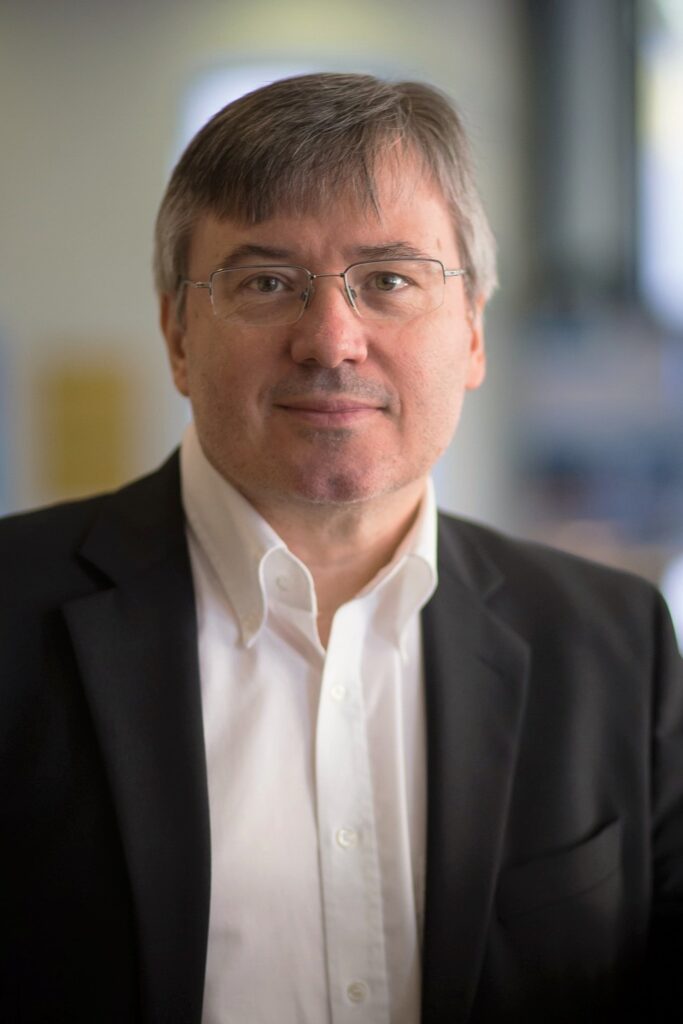
Albert Ziegler, PhD, is Chair Professor of Educational Psychology and Research on Excellence at the University of Erlangen-Nuremberg, Germany. He is the Founding Director of the Statewide Counseling and Research Center for the Gifted. He has published approximately 400 books, chapters and articles in the fields of talent development and educational psychology. He developed the Actiotope Model of Giftedness, which promotes a systemic conception of giftedness. In his research, his main interests are learning resources and effective learning environments, self-regulated learning, mentoring, and gifted identification. Presently, he serves as the Secretary General of the International Research Association for Talent Development and Excellence (IRATDE), as Vice-President of the European Council for High Ability (ECHA), and as Chairman of the European Talent Support Network (ETSN). He is Editor-in-Chief of High Ability Studies, the scholarly journal of ECHA. In 2017, he was appointed Director of the World Giftedness Center in Dubai.
